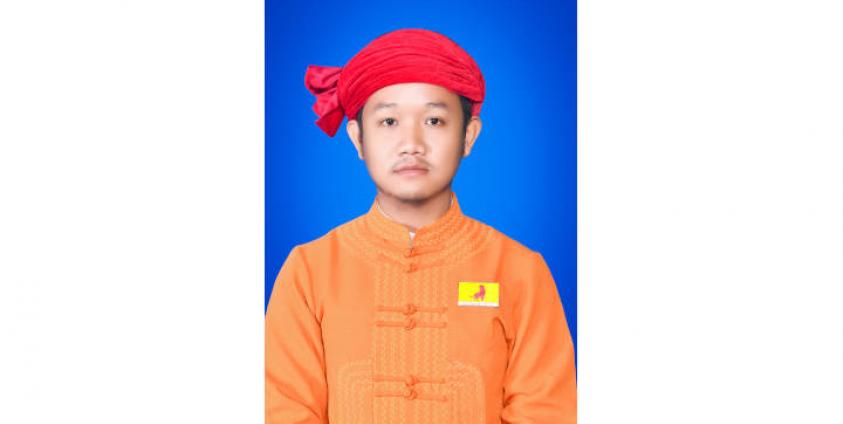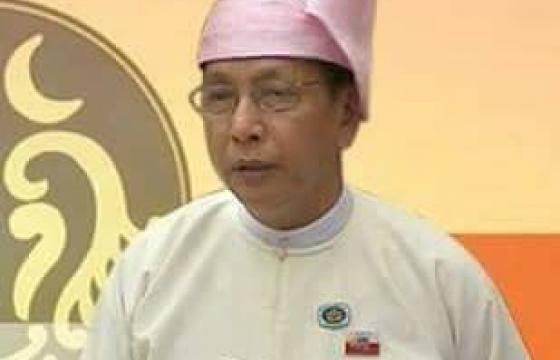Young candidates under 35 years old account for 31.58 percent of candidates who will compete in the upcoming election representing the Tai-Leng Nationalities Development Party. This party is also known as the Shan-ni Nationalities Development Party
With the majority of Shan-Ni youths struggling with drug problems, they have little involvement and interest in politics. An increase in the number of Shan-ni young candidates is a big step forward for Shan-ni ethnic people and the whole country. Among them, Ko Sai Wunna Aung is the 26-year-old candidate who has registered to run for the seat in Momauk Township Constituency-1 in the 2020 General Elections. The following is an interview with Ko Sai Wunna Aung who is the youngest candidate of the party.
Q: Why do you register to contest the upcoming election, representing Tai-Leng (Shan-ni) Nationalities Development Party?
A: In 2020, I started my career in Yangon. I went home due to COVID-19. On arrival in my region, Shan-ni party invited me to attend the meeting to choose the candidates. The party leaders requested me to compete in the election representing the party as a young candidate.
Q: As a Shan-ni ethnic, how do you start to get interested in politics?
A: I chose to major in international relations (IR) after I passed the matriculation exam. After graduation, I attended other political courses. Then, I joined Shan and Shan-ni organizations. I continue to keep a constant eye on the current political situations. Our youths will have to perform the duties in the place of the elders Most of Shan-ni youths are little interested in politics. Many have fallen victim to narcotic drugs. Some youths have assumed that they will get money if they work in gold and jade mining. They think that they not anything of they go into politics. Another obstacle is many are afraid to enter politics. Our Shan-ni homeland and our name has disappeared. Shan-ni people are oppressed. They fear the consequences of their involvement in politics.
In the past many involved in politics came to a bad end and suffer abuse. So I keep my eyes and ears open as much as I can. I hope Shan-ni youths will follow in my footsteps when I start entering politics. At first, I decided to enter politics only when I am over 30.
Q: As a young candidate, what are your election pledges to Shan-ni voters?
A: Most of Shan-ni people are registered as Bamar ethnic on the NRC card. I want to help solve this problem within the framework as much as I can. I want to work for the rights for self-determination of Shan ethnic communities. Our region’s main business is agriculture. Our country is an agro-based country. Our agro-products have rely mainly on the Chinese market. But the Chinese businessmen are doing price manipulation, as there are no agreements in the market. The first point is I want to help solve the difficulties the agriculture sector is facing in our region. We face being bullied by armed groups as we are living in Kachin State. I will form a Shan social creation group. I will solve the recruitment of soldiers, in cooperation with the Shan social creation group. I will negotiate with the armed organizations in order to protect the people from the recruitment of soldiers and porters.
Most of the problems in Shan-ni region are linked to narcotic drugs. I want to solve it. There are no clinics in some areas. I want to help solve problems such as the lack of medicine.
Q: What is your view on the current political landscape as a young Shin-ni candidate?
A: It has been one decade our country has started exercising the democracy system. We have experienced two democratic governments. The successive governments did not deal with the ownership and equal rights related to our race and interest. I think only Shan-Ni people can deliver the fundamental rights of our people. That’s why I decided to compete in the election representing the Shan-ni party. The main point I want to say is that currently, only ethnic parties are keen to ask for the fundamental rights of every ethnic group. The big parties pay more attention to nationwide reforms. But the issue of ethnic rights has faded away during the reform period. Also there are human rights violations. Candidates from the regional ethnic parties need to put more effort into solving these problems when they become lawmakers. The people need to choose regional ethnic parties. Ethnic parties need to protect the fundamental rights of their ethnics.
Q: Do you have anything to want to add?
A: Our tribes have long lived under our own kings. We faced more oppressions than other ethnics throughout the colonial era as we actively participated in the fights against imperialists.
Our territories were put in Kachin State and Sagaing Region under the 1947 Constitution after the country regained independence. We have had no rights to say our tribe name even after the country regained independence. Our tribe has been erased from history.
We are asking for the restoration of equal rights for our people. This is our sacred-duty. Our youth need to keep a watchful eye on the current political situations in order that they can perform their duty smoothly. I strongly believe that we will achieve our goal rapidly through the combination of youths’ new ideas and views and the experience of the older generation. I would like to urge the Shan-ni youths to take an interest in politics.






